
The Book of Proverbs is a book in the third section of the Hebrew Bible and a book of the Christian Old Testament. When translated into Greek and Latin, the title took on different forms: in the Greek Septuagint (LXX) it became Παροιμίαι ; in the Latin Vulgate the title was Proverbia, from which the English name is derived.
Amenemope, the son of Kanakht, is the ostensible author of the Instruction of Amenemope, an Egyptian wisdom text written in the Ramesside Period. He is portrayed as a scribe and sage who lived in Egypt during the 20th Dynasty of the New Kingdom and resided in Akhmim, the capital of the ninth nome of Upper Egypt. His discourses are presented in the traditional form of instructions from father to son on how to live a good and moral life, but they are explicitly organized into 30 numbered chapters.

Proverbs 31 is the 31st and final chapter of the Book of Proverbs in the Hebrew Bible or the Old Testament of the Christian Bible. Verses 1 to 9 present the advice which King Lemuel's mother gave to him, about how a just king should reign. The remaining verses detail the attributes of a good wife or an ideal woman. The latter section is also known as Eshet Ḥayil.
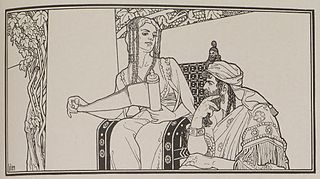
Lemuel is the name of a biblical king mentioned in Proverbs 31:1 and 4, but whose identity remains uncertain. Speculation exists and proposes that Lemuel might have been king of Massa, while some identified him with Hezekiah or Solomon.
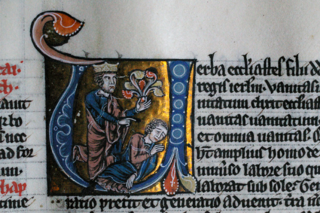
Ecclesiastes 1 is the first chapter of the Book of Ecclesiastes in the Hebrew Bible or the Old Testament of the Christian Bible. The book contains philosophical speeches by a character called Qoheleth, composed probably between 5th to 2nd century BCE. Peshitta, Targum, and Talmud attribute the authorship of the book to King Solomon. This chapter contains the title of the book, the exposition of some basic facts and the problem of life, especially the failure of wisdom.
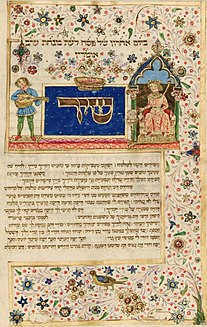
Song of Songs 1 is the first chapter of a book called "Song of Songs" or "Song of Solomon" in the Hebrew Bible or the Old Testament of the Christian Bible. This book is one of the Five Megillot, a collection of short books, together with Book of Ruth, Lamentations, Ecclesiastes and Esther, within the Ketuvim, the third and the last part of the Hebrew Bible. Jewish tradition views Solomon as the author of this book, and this attribution influences the acceptance of this book as a canonical text, although this is now largely disputed. This chapter contains the superscription, songs of the main female characters and the opening song of the male character.
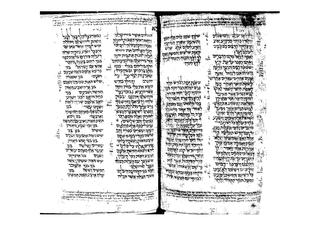
Nehemiah 1 is the first chapter of the Book of Nehemiah in the Old Testament of the Christian Bible, or the 11th chapter of the book of Ezra-Nehemiah in the Hebrew Bible, which treats the book of Ezra and the book of Nehemiah as one book. Jewish tradition states that Ezra is the author of Ezra-Nehemiah as well as the Book of Chronicles, but modern scholars generally accept that a compiler from the 5th century BCE is the final author of these books. This chapter describes Nehemiah's position in the Persian court and his piety.

Ezekiel 5 is the fifth chapter of the Book of Ezekiel in the Hebrew Bible or the Old Testament of the Christian Bible. This book contains the prophecies attributed to the prophet/priest Ezekiel, and is one of the Prophetic Books. This chapter contains the prophecies using the division of the prophet's shaved hair as a sign, showing God's judgment upon Jerusalem, by pestilence, by famine, by the sword, and by dispersion. The siege is described again in chapter 6.
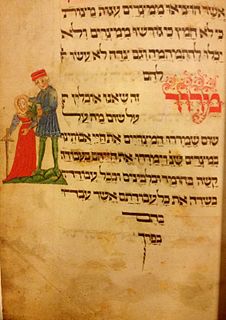
Ecclesiastes 7 is the seventh chapter of the Book of Ecclesiastes in the Hebrew Bible or the Old Testament of the Christian Bible. The book contains philosophical speeches by a character called '(the) Qoheleth', composed probably between 5th to 2nd century BC. Peshitta, Targum, and Talmud attribute the authorship of the book to King Solomon. This chapter deals with suffering and sin. The style of the first half is similar to that of the 'sentence literature' collections and, as in such collections, the sayings are linked by catchwords and thematic ties with the previous ones, with a series of "better ... than" presenting dialectic pairs of issues. The second half exposes the 'crookedness of life' that moves to the 'crookedness of humanity'.
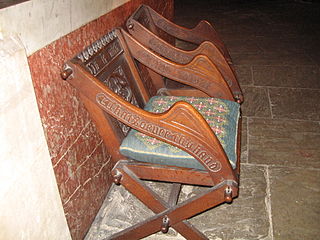
Ecclesiastes 9 is the ninth chapter of the Book of Ecclesiastes in the Hebrew Bible or the Old Testament of the Christian Bible. The book contains the philosophical and theological reflections of a character known as Qoheleth, a title literally meaning "the assembler" but traditionally translated as "the Teacher" or "The Preacher." The identity of Qoheleth it unknown. In traditional Jewish texts such as the Peshitta, Targum, and Talmud, authorship of Ecclesiastes is attributed to King Solomon due to the fact that Ecclesiastes 1:1 identifies Qoheleth as the "son of David, king in Jerusalem. However, it is generally agreed upon by contemporary scholars that the book could not have been written in the 10th century during the time of Solomon. It is now thought to be one of the latest books in the Old Testament to be written, likely sometime between the 5th and 3rd centuries BCE.
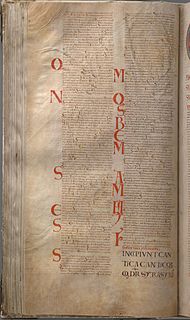
Ecclesiastes 10 is the tenth chapter of the Book of Ecclesiastes in the Hebrew Bible or the Old Testament of the Christian Bible. The book contains philosophical speeches by a character called '(the) Qoheleth', composed probably between 5th to 2nd century BCE. Peshitta, Targum, and Talmud attribute the authorship of the book to King Solomon. This chapter focuses on foolishness, either in persons, in high places, in action, in words and even in national life.
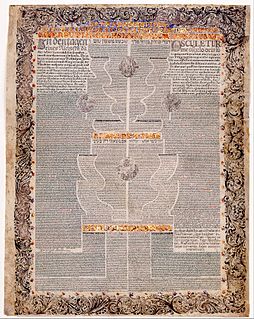
Ecclesiastes 11 is the eleventh chapter of the Book of Ecclesiastes in the Hebrew Bible or the Old Testament of the Christian Bible. The book contains philosophical speeches by a character called '(the) Qoheleth', composed probably between 5th to 2nd century BCE. Peshitta, Targum, and Talmud attribute the authorship of the book to King Solomon. This chapter and the next are characterized by the encouragement to make decision and the need to act speedily.

Song of Songs 8 is the eighth chapter of the Song of Songs in the Hebrew Bible or the Old Testament of the Christian Bible. This book is one of the Five Megillot, a collection of short books, together with Book of Ruth, Lamentations, Ecclesiastes and Esther, within the Ketuvim, the third and the last part of the Hebrew Bible. Jewish tradition views Solomon as the author of this book, and this attribution influences the acceptance of this book as a canonical text, although this is at present largely disputed. This chapter contains dialogues between the woman and the daughters of Jerusalem, the woman and her brothers, then finally, the woman and the man.
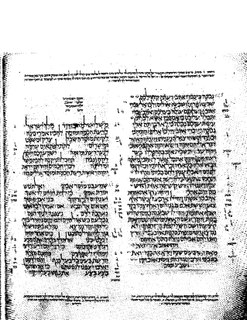
Proverbs 30 is the 30th chapter of the Book of Proverbs in the Hebrew Bible or the Old Testament of the Christian Bible. The book is a compilation of several wisdom literature collections: the heading in Proverbs 1:1 may be intended to regard Solomon as the traditional author of the whole book, but the dates of the individual collections are difficult to determine, and the book probably obtained its final shape in the post-exilic period. This chapter first records "the sayings of Agur", followed by a collection of epigrams and aphorisms.

Chapters 25 to 29 of the Book of Proverbs in the Hebrew Bible are treated by commentators as the fifth part of the book, or the "second Solomonic collection". This section of Proverbs is introduced within the text as "[the] proverbs of Solomon which the men of Hezekiah king of Judah copied". Hezekiah was the 13th king of Judah from 726 BCE to 697 BCE, who is spoken of favourably in 2 Kings 18:3.

1 Kings 4 is the fourth chapter of the Books of Kings in the Hebrew Bible or the First Book of Kings in the Old Testament of the Christian Bible. The book is a compilation of various annals recording the acts of the kings of Israel and Judah by a Deuteronomic compiler in the seventh century BCE, with a supplement added in the sixth century BCE. This chapter belongs to the section focusing on the reign of Solomon over the unified kingdom of Judah and Israel. The focus of this chapter is the reign of Solomon, the king of Israel.

1 Kings 12 is the twelfth chapter of the Books of Kings in the Hebrew Bible or the First Book of Kings in the Old Testament of the Christian Bible. The book is a compilation of various annals recording the acts of the kings of Israel and Judah by a Deuteronomic compiler in the seventh century BCE, with a supplement added in the sixth century BCE. This chapter belongs to the section comprising 1 Kings 12:1 to 16:14 which documents the consolidation of the kingdoms of northern Israel and Judah. The focus of this chapter is the reigns of Rehoboam and Jeroboam.

Proverbs 23 is the 23th chapter of the Book of Proverbs in the Hebrew Bible or the Old Testament of the Christian Bible. The book is a compilation of several wisdom literature collections, with the heading in 1:1 may be intended to regard Solomon as the traditional author of the whole book, but the dates of the individual collections are difficult to determine, and the book probably obtained its final shape in the post-exilic period. This chapter specifically records "the sayings of wise".

Proverbs 22 is the 22th chapter of the Book of Proverbs in the Hebrew Bible or the Old Testament of the Christian Bible. The book is a compilation of several wisdom literature collections, with the heading in 1:1 may be intended to regard Solomon as the traditional author of the whole book, but the dates of the individual collections are difficult to determine, and the book probably obtained its final shape in the post-exilic period. This chapter records parts of the second and third collection of the book.

Proverbs 24 is the 24th chapter of the Book of Proverbs in the Hebrew Bible or the Old Testament of the Christian Bible. This chapter specifically records "the sayings of wise".














